
The following is a transcription of a letter sent in 1839 by an Irish immigrant called Henry Neill to his parents in Ireland. The original letter with original calligraphy was published in full on this site 12 months ago.
“Louisville, KY. Oct 16th 1839.
Dear Father, Yours of the 6th April last came duly to hand at which time John wrote to you and as he expected an answer before he left I must say he was rather dissatisfied at the disappointment.
He left this place on Saturday last on board the steamboat Wacousta bound to St.Louis from thence he will go further up the river & probably into the interior of the Territory of Iowa. Our calculation is for him to buy a tract of land there or should he fail in that as soon as the winter sets in he will most likely go down to New Orleans & from thence to the Republic of Texas. I have for some time past known but little of a country life being closely confined to the city but from information I can gather the farmers in this country are by far the happiest & independent part of the community.
And as I know you would wish to know something of the new countries, those to which the principal emigration is now (progressing?), are the states of Illinois, (Missouri?), Arkansaw (sic), together with the Territories of Wisconsin & Iowa, & last though not least the new & thriving Republic of Texas.
The price of land in this country is fixed by government at one dollar & a quarter an acre, but in addition a stranger going to a new country has to pay the squatter for his right the price of which may vary according to the location & improvements (if any), to explain this I may say these adventurers or what we call squatters go back into the new countries & settle upon a tract of land & live principally by hunting, then when the land comes to be sold by government orders, they having the (presumption?) right (if they wish) can get the land by paying $1.25 and acre (in preference?) to all others, but often the squatters not wishing to keep the land or probably not being able to pay for all they have claimed, sell their right of one portion to enable them to pay for the other or sometimes sell all & go further back & squat on another tract.
(?) but to return to the new states, Illinois is a free state as so will Iowa when it becomes a state (all new territories are admitted to the Union as soon as they contain a certain population).
Missouri is a slave state & therefore those emigrating to it are chiefly from Virginia and some others of the (old?) slave states with some French & Spaniards. Those going to Illinois are from the eastern states with many (indecipherable?) Irish. So with Iowa, this like many other names in this country is of Indian origin & means in our language Home or Sweet Home.
Texas is a vast extant of country adjoining the United States, it was formally under the government of Mexico but the inhabitants revolted and after many bloody conflicts have declared independence & formed a constitution similar to that of the (US?). Every male emigrant to this country ((supposing?) to the constitution) receive a portion of the public land (grants?).
Your O’Connell has made a bold effort in the British House (Parliament) against consenting to the independence of this Republic but had it not been taken from a Papish government he would likely have kept silent on the subject slave system and all.
(I received?) a letter from John Arnold on Saturday last just in time for John to see it before he started (they are all well). My health is well as John’s has been extremely good since we left you neither of us being confined for one day for a short time last Spring I was rather delicate at which time I took a trip to Cincinnati Ohio (after) which I have been perfectly healthy.
James Dixon is married. He & his brother and their wives (illegible) Mrs. McKee who came out last season are all living in Pittsburgh. Isabella Ringland is in Philadelphia & Abram still in his old situation with Myers. I send you some of this country Newspapers from which you will see some of the divisions amongst us in politics. Here the two great parties are one who calls themselves Whigs & calling the opposite party Loco focos – of course we belong to the Locos in Pennsylvania and many parts of the (text missing).
The great division is Mason and Antimason & in many parts (text missing)
Abolitionists (of which I could be willing one in number but that would be folly in Kentucky) are setting up great opposition to the slave system (I heartily wish them success as I am assured slaves are a curse to any country although the people here place great store by them & think they are their principal wealth a young lady here if she is possessed of a few negroes she is thought not common but rather above the ordinary (ladys?) though in my estimation being raised with those negro attendants is the very thing that renders her worthless so much for the maiden of Kentucky.
While the ladies of the sister states Indiana or Ohio only separated by the Ohio river have by good (illegible) exercise working with their own hands acquired a far more healthy (illegible) and appearance & are (text missing) with their own industry worth will worth the slave holding belle with all her train of Africans.
I wish you to write as soon as this comes to hand as most likely it is the last letter you will ever have to direct to Louisville. My engagement here which is at $25(?) a month will be up on the first of April next at which time I intend to leave unless I get a liberal advance in salary or something else unknown may occur. I would therefore wish to hear from you before that time expires & I shall again write to you as soon as I can give you any information concerning the success John may have on his voyage or where he may have settled as he will write to me as soon as he can give me any satisfaction. I board & lodge with the family of James McCrum (?) so did my brother until within a month or so of leaving us.
The times are rather worse here than some time ago as was expected for some time the banks have again stopped paying (ineligible) for any of their notes they had suspended some time before we landed in this country & again resumed some time after I came to Louisville & have this day for the first again have refused to redeem their notes.
There are in this city several churches, two Episcopal, three Presbyterian to the first of which I belong William L Breckinridge is our minister. Last summer they built a splendid new church so did the Episcopalians. There are also Methodists, Baptists & many others yes it would take a (ineligible) to describe all the different Religious denominations in this city. Although I verify but not more than two thirds of the population attend any church or religion at all. Hoping this might find you and all my inquiring friends well as it now leaves me & wishing to hear from you as soon as convenient.
I remain your distant son
Henry Neill.




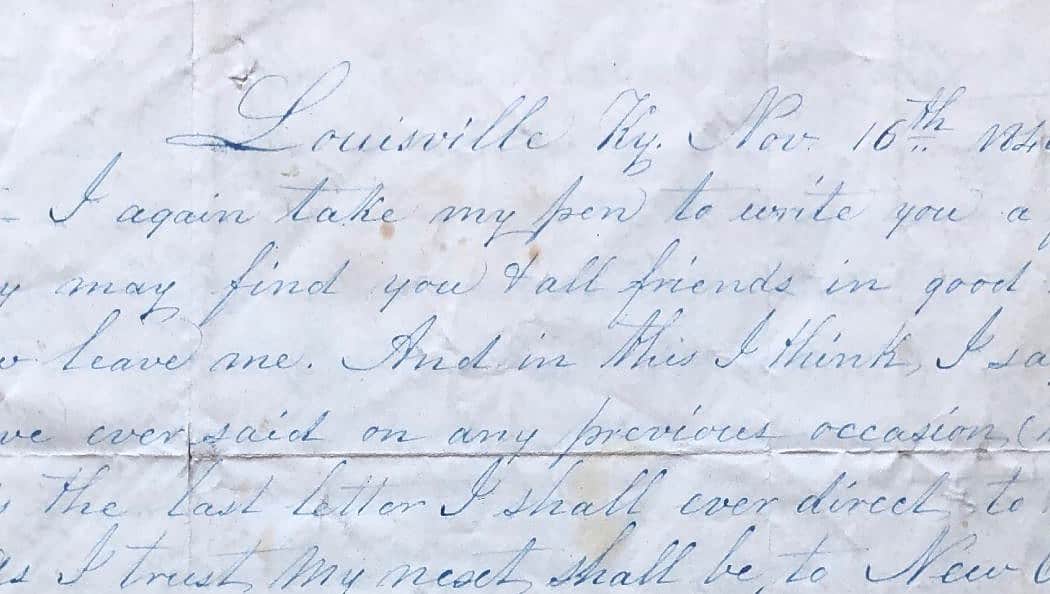
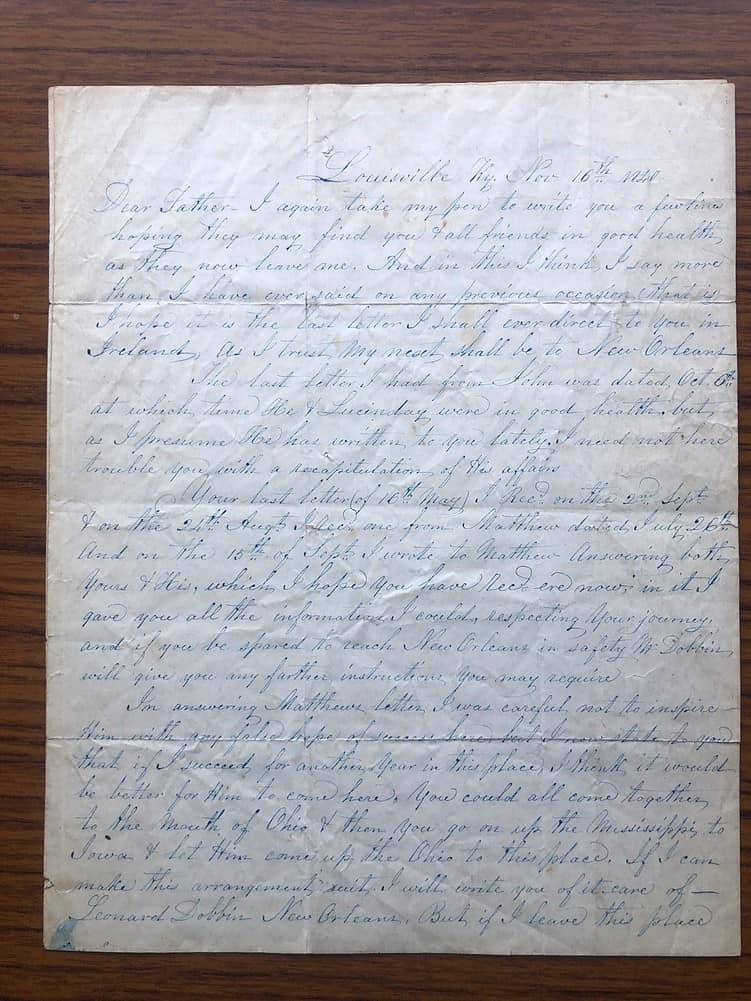
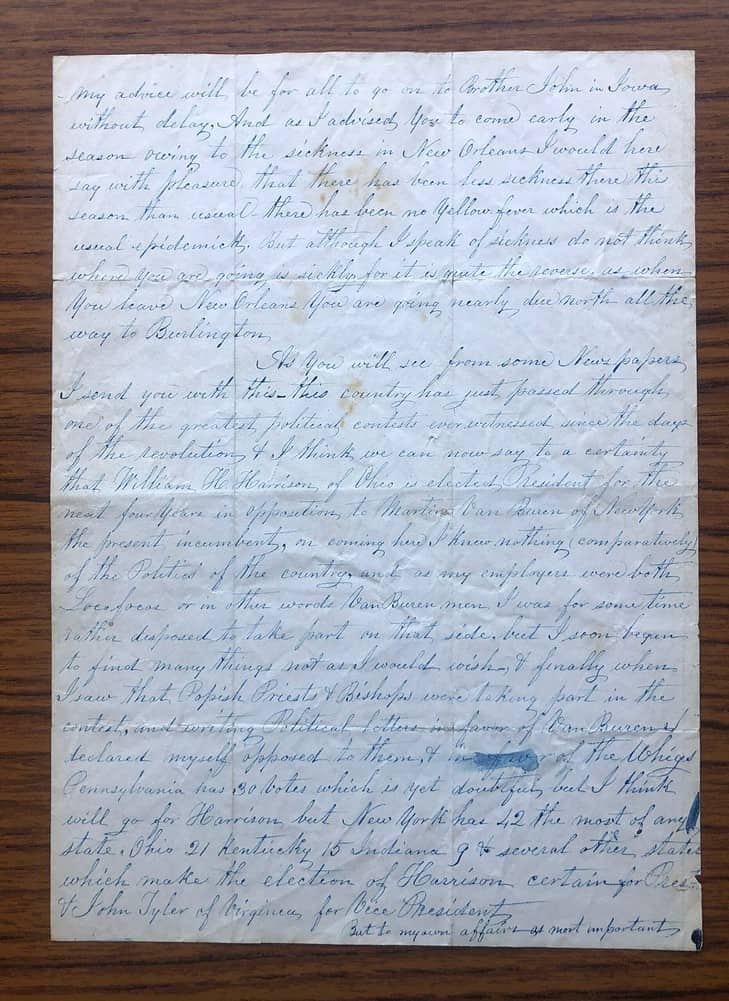
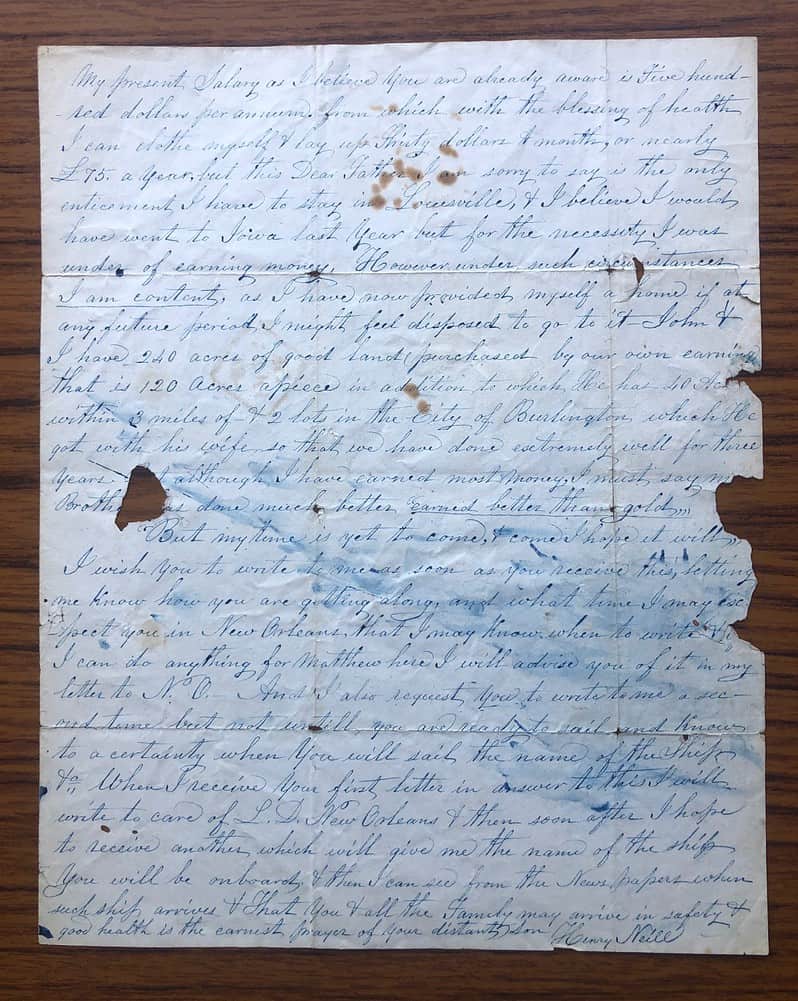
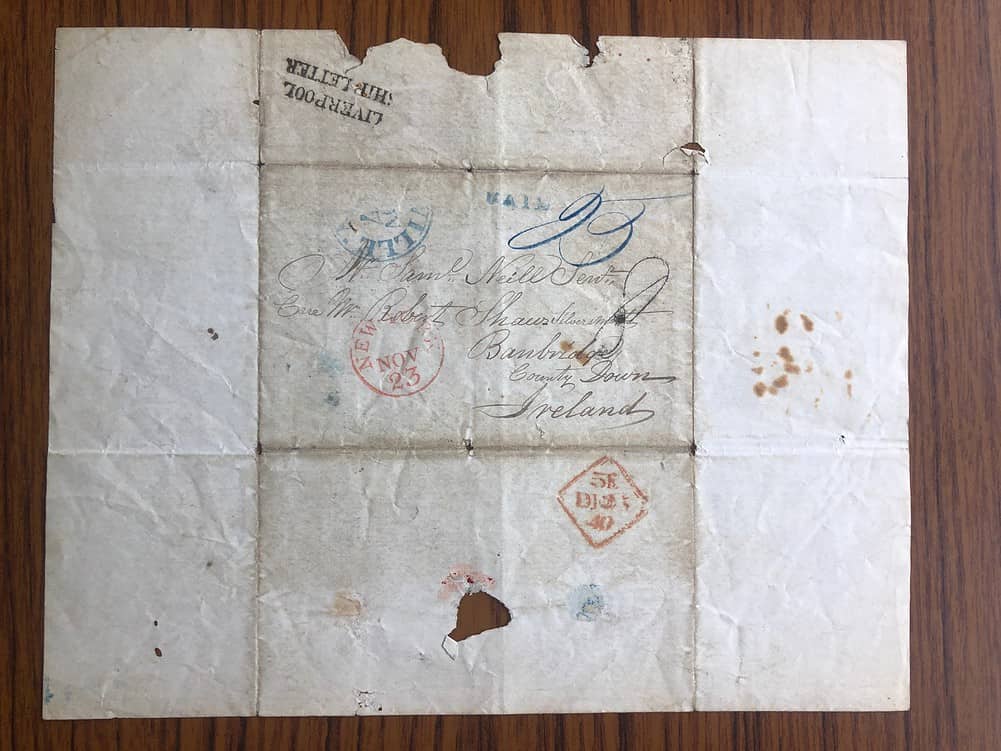

 I’m excited to share an extraordinary journey I embarked upon recently. On this adventure, I followed in the footsteps of the Scots-Irish when they landed in America. It took me down the Shenandoah Valley and led me to an old Irish cottage in Virginia. This encounter sparked a personal exploration into the captivating history and craft of the Irish linen industry, an integral part of the Scots-Irish Presbyterian heritage in the United States.
I’m excited to share an extraordinary journey I embarked upon recently. On this adventure, I followed in the footsteps of the Scots-Irish when they landed in America. It took me down the Shenandoah Valley and led me to an old Irish cottage in Virginia. This encounter sparked a personal exploration into the captivating history and craft of the Irish linen industry, an integral part of the Scots-Irish Presbyterian heritage in the United States. One of the most striking features inside the cottage was the presence of baskets brimming with raw materials – freshly sheared wool and unprocessed flax. As I ran my fingers through these natural fibers, I could easily imagine the skilled hands that once worked tirelessly, transforming these raw materials into practical, valuable threads.
One of the most striking features inside the cottage was the presence of baskets brimming with raw materials – freshly sheared wool and unprocessed flax. As I ran my fingers through these natural fibers, I could easily imagine the skilled hands that once worked tirelessly, transforming these raw materials into practical, valuable threads.